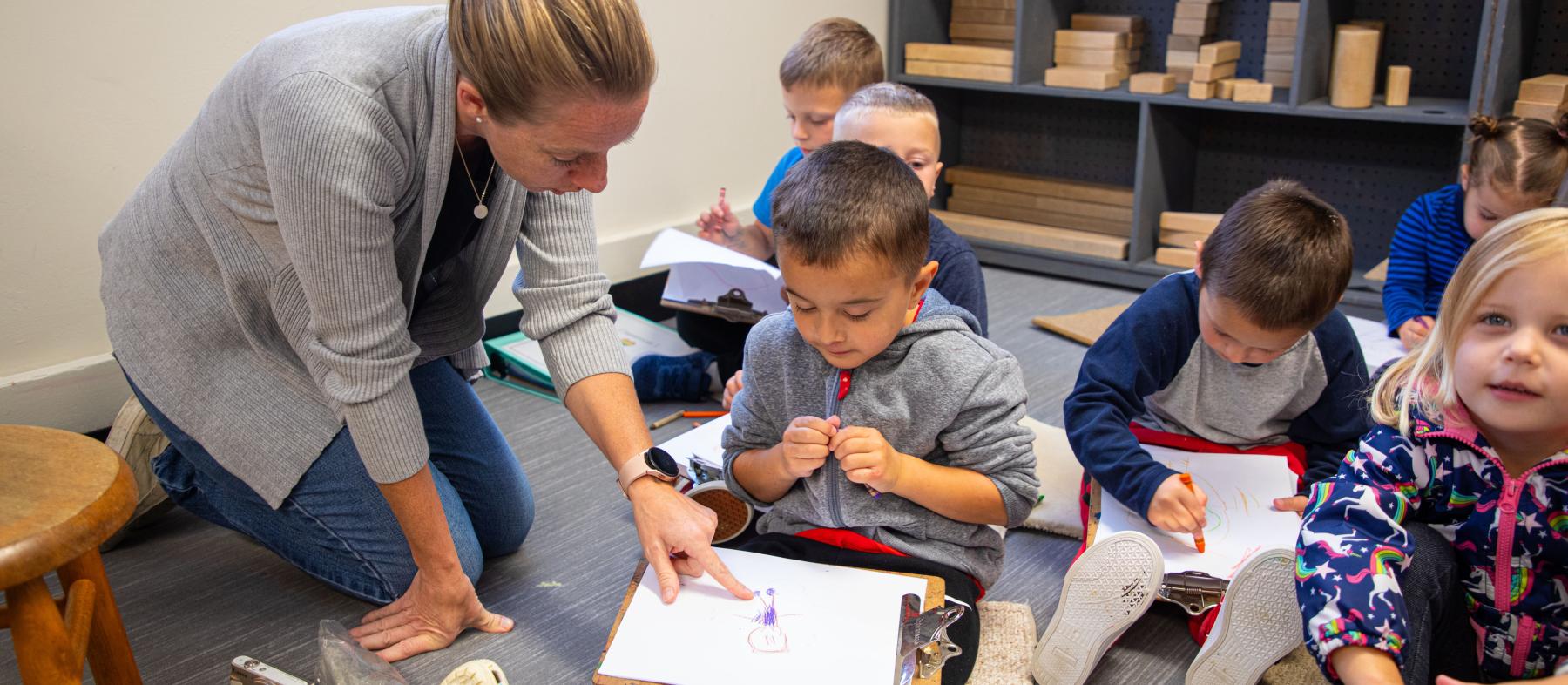Program Goals:
The General Studies - Elementary Education Transfer Option meets the standards of MassTransfer and prepares students for transfer to undergraduate elementary education programs at Massachusetts public higher education institutions. The program includes broad-based general education courses, as well as courses that are more closely aligned to children and teaching. The goal is to provide students with a clear path to a degree at a four-year university.
Student Learning Outcomes:
Upon completion of the program, graduates will be able to:
- Demonstrate mastery of number sense and numeration, patterns and functions, geometry and measurement, and data analysis.
- Apply the concepts and methods of understanding of human development from conception to adolescence.
- Apply the concepts and methods of understanding children’s literature.
- Apply the concepts and methods of teaching and learning at the elementary level.
- Achieve awareness of historical, philosophical, and pedagogical perspectives in elementary education.
- Write and speak clearly.
- Locate, evaluate, and apply reliable and appropriate information.
- Relate scientific methods of inquiry to the acquisition of knowledge.
- Demonstrate knowledge and appreciation of diverse cultures, personal perspectives/anti-bias, culturally-responsive practices, and family and community involvement.
- Demonstrate an understanding of the educational considerations, including adaptations, accommodations, modifications, and supports for students with varying exceptionalities.
- Achieve awareness of the educational issues, policies, and law as they relate to children with differing abilities.
- Demonstrate an understanding of evidence-based practices for the explicit and systematic instruction of foundational reading skills in the areas of phonological and phonemic awareness, phonics, fluency, vocabulary, and comprehension.
Admissions Process:
Admissions inquiries should be directed to admissions@qcc.mass.edu. Prospective students may apply to the program of their choice by following the enrollment steps at www.QCC.edu/enrollment-steps.
Program Admissions Requirements:
Students should note that some first semester courses carry minimum prerequisites. Refer to the program grid.
- High School Diploma or GED/HiSET.
CORI, SORI, Finger Printing & Drug Testing:
Criminal Offender Record Information (CORI), Sex Offender Registry Information (SORI), Department of Children & Families (DCF) background checks and/or fingerprinting are required for certain mandatory courses. Depending on the contents of these criminal background check(s), a student’s participation in an academic program that involves working with children, the disabled, or the elderly, or which includes an observation, practicum, or field placement, may not be allowed, and therefore may impact a student’s ability to complete program requirements. For more information, visit the CORI/SORI page.
Additional Cost:
See the Program Fees page.
- Required: Fingerprinting through IdentoGo.
- Optional: Take a preparation class for the Massachusetts Tests for Educator Licensure (MTEL).
- Recommended: Take the Communication and Literacy Skills Test (CLST) or one of the DESE-approved alternative MTEL assessments.
Technical Performance Standards:
See the Technical Performance Standards page. (Note: Not all programs have technical performance standards).
Credit for Prior Learning:
Credit for Prior Learning (CPL) allows students to use skills they already have towards a college degree or certificate. Work, life, volunteer and military experience may be translated into credit, allowing students to take fewer classes and earn their degree faster. CPL eliminates redundancies for students who have already earned credentials or mastered skills required for their program of study. Email experience@qcc.mass.edu for more information and eligibility.
Career Outlook:
Please consult the Massachusetts Career Information System at https://masscis.intocareers.org/ or the Occupational Outlook Handbook at www.bls.gov/ooh/ for specific occupational information. The CIP code for this program is 13.1202.
Transfer Articulations & Opportunities:
Prospective students may learn more about transfer articulation agreements at www.QCC.edu/agreements. More information regarding transfer opportunities is available at www.QCC.edu/transfer.
Additional Information:
- Massachusetts four-year colleges and universities require elementary education students to complete a minor or second academic major. Specific requirements vary depending on the institution to which students transfer. To maximize transfer of credits, students should intentionally select Electives based on their planned second major or minor.
- EDU courses require a minimum passing grade of “C” or higher.
- EDU courses cannot be taken more than twice.
- For each EDU course, students must complete 24 hours of pre-practicum.
- Pre-practicum may be completed at the student’s work site.

